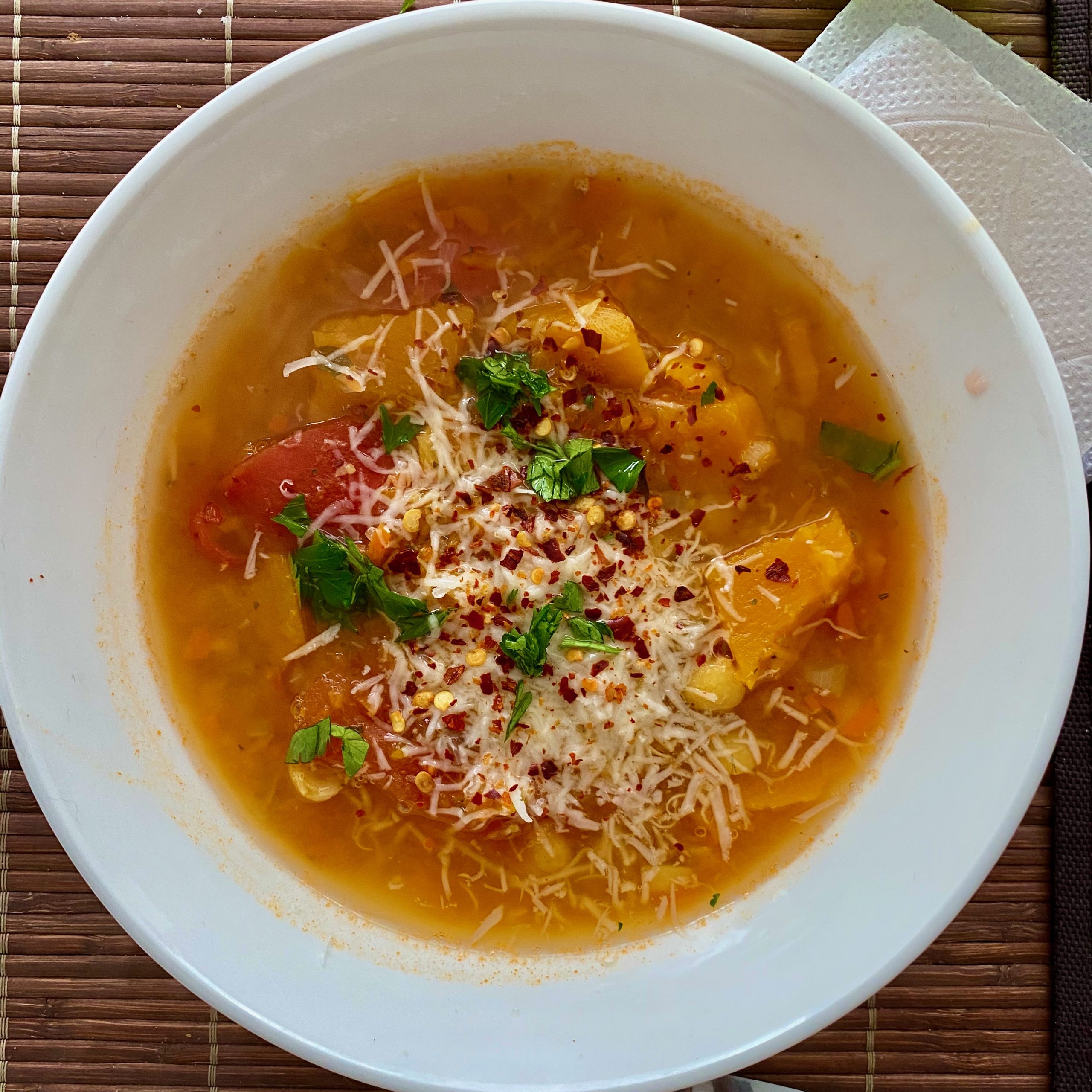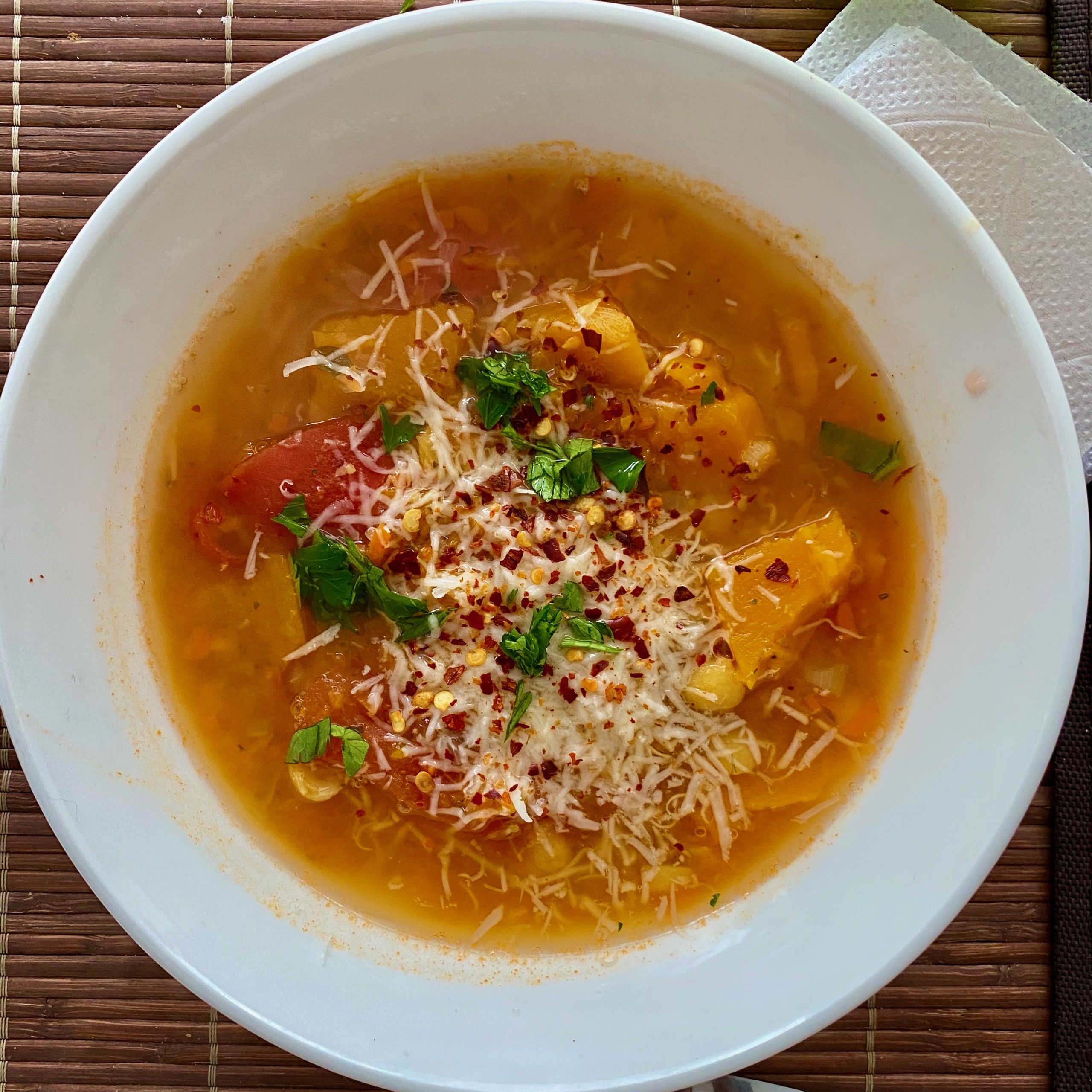In the past few weeks I’ve noticed how eating home cooked meals has improved many aspects of my life. I get a sense of accomplishment from feeding myself and my friends, I lose weight because I’m conscious about portion sizes and use good quality ingredients, and I order junk food much less. I also noticed that the amount of food required to make me feel satisfied went down significantly, probably as a consequence of the portion sizes.
I’m still facing some issues, mostly related to consistency and cravings, which are closely related. When I start running low on ingredients it gets harder to improvise dishes and my mind starts going back to UberEats. I start browsing the app, and then just order whatever — usually junk in the form of burgers, but also poorly portioned Thai or Chinese food.
My hypothesis is that if I plan my meals and shop for the required ingredients ahead of the coming week, I’ll be much less likely to fall back to takeout. Another aspect of this hypothesis is that I should include one or two takeout meals, which I can fit into social activities, be it remote or with my co-habitants.
How?
I have already been cooking a lot since March, again because of the self imposed lockdown, so I know which are my favorite dishes to cook and eat:
- Carbonara. The re al one, with guanciale, Pecorino Romano, pepper and eggs.
- Lentils with rice. A real classic that really reminds me of home. This includes lentils, rice, pumpkin, some kind of broth and parsley to garnish. Optional is adding a fried egg, sausage or bacon on top.
- Meatballs and mashed potatoes. Inspired by Alex’s Perfect Meatball series I started making a lot of meatballs, and my favorite companion for them is homemade mashed potatoes. These recipes require ground meat, stale bread or breadcrumbs, whole milk, Pecorino, parsley, pepper, salt, butter, onion, garlic. Optional: lemon and orange for the tomato sauce, and basil.
- Fake tabbule. I call it fake because it loosely resembles the real one. I use couscous, and add finely chopped cucumber, garlic, mint, and cherry tomatoes. While those are my minimum requirements, I also add whatever other veggies I have at hand as long as they’re good raw. This recipe requires no cooking, but chopping everything finely enough takes some time.
These are the dishes that I’ve prepared for myself most frequently, but there’s some other quick and easy recipes that I like a lot, including tuna salad, beans with spaghetti or “porotos con rienda”, pasta aglio e olio, chickpea salad, and when everything else fails, just eat chicken or fried eggs with rice.
My idea is to come up with a selection of the previous dishes that allows me to optimize the shopping, and perhaps even have some leftovers for dinner or the next day. For example, I can make a lot of meatballs and freeze some for the next time.
Execution: Ideas for Week #1.
Monday. Lunch: Tuna Salad Sandwich. Dinner: Meatballs with mash.
Tuesday. Lunch: Tabbule. Dinner: Lentils with rice.
Wednesday. Lunch: Chickpea salad. Dinner: Pastrami sandwich.
Thursday. Lunch: More chickpea salad. Dinner: Carbonara.
Friday. Lunch: Tuna Salad Sandwich. Dinner: Takeout.
Saturday and Sunday are reflection days, and can be used to figure out what worked and what didn’t, as well as to catch up with any unused ingredients: everything perishable should be turned into any combination of the dishes above. In the case of nothing being left from the week, the alternatives are ordering takeout or preparing the shopping for the next week early.
I don’t have breakfast other than a cup of coffee, so I’m not adding anything on that category, but that can be sorted by getting avocados and eggs, as well as a few extra pieces of bread.
Week #1 shopping list.
In terms of quantities a kilo of each big veggie, a few hundred grams of each herb, and whatever amount of canned or otherwise packaged goods is the minimum available (for instance, a 300gr can of cubed tomatoes) are good enough estimates. Each meal will be cooked for 3 adults in this case, so that’s something else to keep in mind. Some of these items, such as the chickpeas, lentils and frozen pumpkin, should last a few weeks so future lists should be smaller if the base items don’t change.
- Chickpeas.
- Canned tomatoes.
- Lentils.
- Cucumbers.
- Sandwich bread.
- Guanciale.
- Lettuce.
- Cherry tomatoes.
- Parsley.
- Mint.
- Red onions.
- Bell peppers.
- Frozen pumpkin. Fresh pumpkin is just too high maintenance.
- Feta or any other creamy cheese for the salads, ideall goat’s.
- Tomate.
- Couscous.
- Ground beef.
- Mayonnaise.
- Salt.
- Pepper.
- Potatoes.
- Spaghetti.
- Eggs.
- Avocado.
Something to keep in mind is to avoid browsing too much outside of this list. Sometimes good things come out of that, for instance adding mushrooms which are very nice on a lot of dishes even if they’re not specifically mentioned in any of the recipes above, but on the other hand, by straying away from the framework the risk of wasting ingredients increases if the improvised purchase doesn’t fit into any dish or is forgotten because it wasn’t explicitly added beforehand.
The list of ingredients above is very mediterranean, and mostly vegetarian, keep this in mind when looking for alternatives to deviate a bit from the list for whatever reason. For instance, falafel, roasted chicken with lemon, hummus, tzatziki, pasta salad with tomatoes, and greek potatoes are all possible with this list, and those are just a few.
Expectations.
To summarize, I’m trying to prove that having a clear plan will enable me to avoid waste and takeout, and will keep me healthier. I don’t know how to test the latter, but I will keep track of how much is wasted and how many UberEats orders I make from Monday, and report back next week, with photos!


